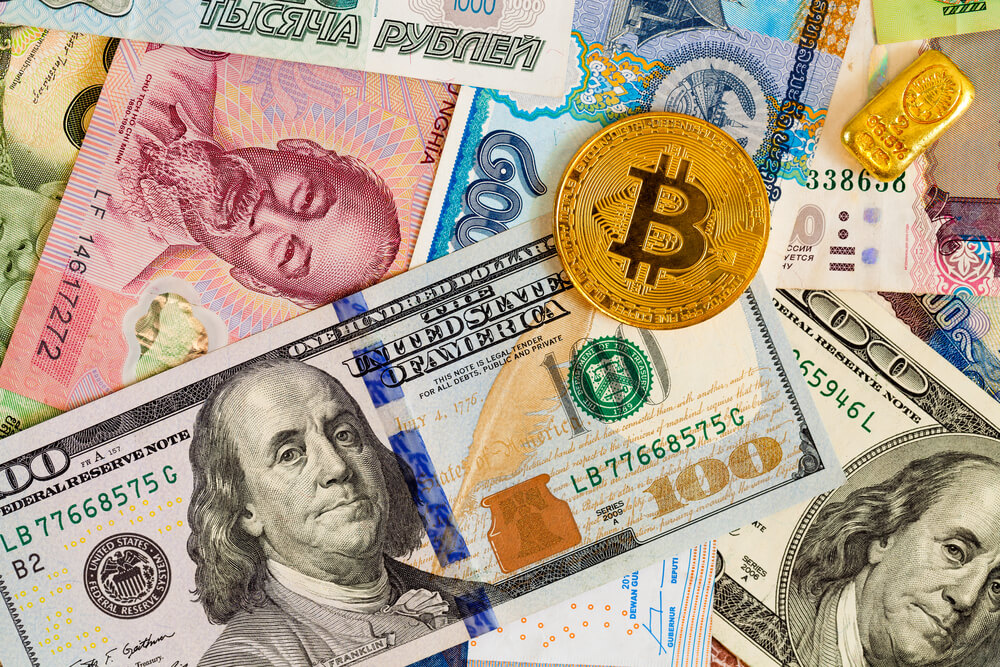If Bitcoin is Ponzi, So is Society: Analyst Criticizes Brazilian Central Bank President

Chris Burniske, a prominent analyst and Placeholder Venture Capital partner, condemned executives and authorities in the global finance industry who have described Bitcoin as a pyramid and a ponzi scheme.
“If you think Bitcoin is a Ponzi scheme, then follow your logic and you’ll find society is a Ponzi,” said Burniske.
Brazil’s Central Bank President Calls Bitcoin a Ponzi, Illogical Argument
Earlier today, on October 18, Brazil’s central bank president Ilan Goldfajn said bitcoin is a financial asset that operates a pyramid scheme because people invest in it for profits and appreciation.
But, by that logic, literally every asset and currency are also ponzi schemes because people invest in them for appreciation and increase in value. Hence, based on the argument and logic of Goldfajn, the Brazilian national currency is a ponzi scheme, assets are pyramid schemes, and reserve currencies are also bubbles. More to that, as Burniske stated, by that stream of thought, society is a ponzi.
Goldfajn stated:
“The bitcoin is a financial asset with no ballast that people buy because they believe it will appreciate. That is a typical bubble or pyramid [scheme].”
Previously, CCN.com reported that highly regarded Wall Street analyst Gary Shilling justified his unwillingness to invest in Bitcoin because of his lack of knowledge in the technology. Shilling understands that Bitcoin is not a fraud or a ponzi scheme because of its decentralized structure. Still, because of his lack of knowledge in Bitcoin, he is not willing to invest in it.
It is one thing to refrain from adding Bitcoin to a portfolio because of the lack of knowledge in the structure of cryptocurrencies, and another to baselessly condemn Bitcoin with non-factual arguments and illogical statements. Bitcoin, by nature, cannot be a ponzi scheme becasue it is a decentralized financial network. Goldfajn, unlike other leaders of central banks in Japan, the US, and South Korea, has demonsrated his complete lack of knwoledge in Bitcoin and incomptence through a single statement.
Brazil Will Isolate Itself With Inefficient Regulations, While Japan, the US, South Korea and Other Regions Grow Exponentially
It is reasonable for financial institutions and banks to fear Bitcoin because it eliminates the necessity of third party service providers and intermediaries, such as banks. But, offering baseless condemnation and incorrect portrayal of Bitcoin will only encourage the public to distance themselves from current banking systems, which are opaque and non-transparent.
Goldman Sachs, Fidelity, the Japanese central bank, the US government, South Korean financial authorities, and others have already embraced Bitcoin and acknowledged the decentrlaized nature of Bitcoin, which disallows the prohibition and censorship of the network. The Bitcoin industry and cryptocurrency market have matured to a point wherein it passed the phase in which figures like Goldfajn can simply call out Bitcoin as a scam, a fraud, and a ponzi scheme because the general consumer base has developed awareness of such claims.
While regions like the US, South Korea, and Japan continue to see an increased adoption of Bitcoin through the rising demand for the cryptocurrency from institutional investors, retail traders, and general consumers, and efficient regulatory frameworks imposed by their central banks, countries like Brazil will continue to isolate themselves from emerging asset classes like cryptocurrencies their central banks simply dismiss the technology because they perceive it as a threat.
More importantly, as highly regarded venture capitalist Chamath Palihipitiya noted, Bitcoin does not require the approval of central banks and financial institutions to succeed, as it is a decentralized financial network. Central banks can either choose to adopt it and prepare an ecosystem wherein banking systems and Bitcoin can co-exist, or try to restrict Bitcoin, which would inevitably lead to an increase in demand for the technology.
“Absolutely not [bitcoin is not a fraud]. It cannot be a fraud. What countries can constrain today is how it [bitcoin] is effectively traded but it cannot be controlled. It is a fundamentally distributed system that exists peer to peer. And so to the extent that you can basically eliminate the will and the actions of every single person in the world, you can eliminate it. But in the absence of that, the genie is fundamentally out of the bottle,” Palihipitya stated.
Featured image from Shutterstock.